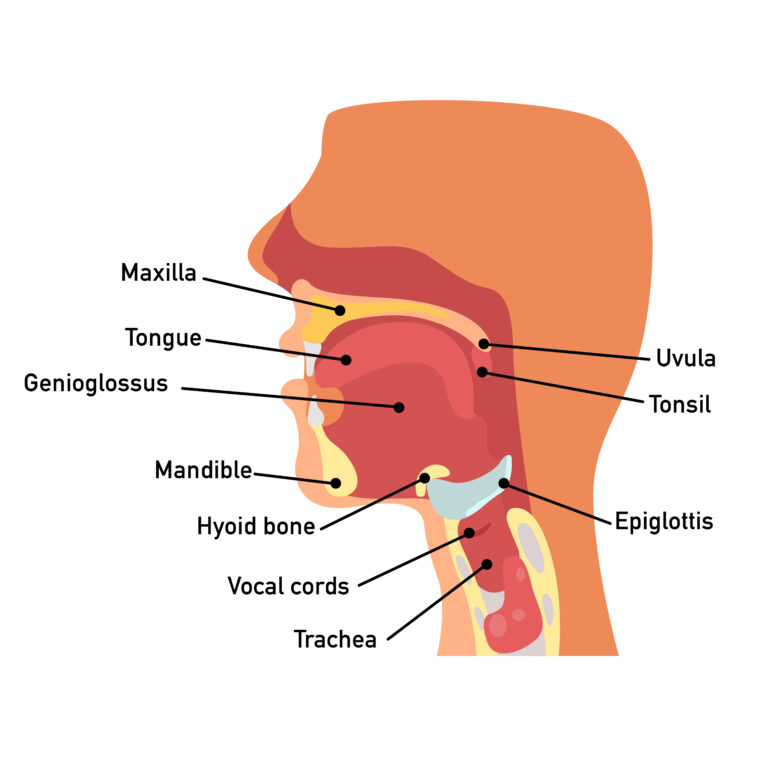A normal swallow is one where a flap called the epiglottis moves to ensure that air goes down the tube to your lungs (the trachea) and that food and fluids go down the tube to your stomach (the oesophagus). In an abnormal swallow, the epiglottis does not move reliably, creating a risk that food and fluid go into the lungs.
When you swallow, a flap called the epiglottis moves to block the entrance of food particles into your larynx and lungs. The muscles of the larynx pull upward to assist with this movement. They also tightly close during swallowing. That prevents food from entering your lungs. The food then goes down the oesophagus into the stomach.
More details can be found on our page ‘What are the full details of the swallowing process?’. In addition,The YouTube link below gives a video that shows the difference between the normal vs abnormal swallow.
When food or liquid enters the lungs, it is known as aspiration. Aspiration can lead to various complications and health risks. Here are some potential consequences of food or fluid entering the lungs:
Aspiration pneumonia:
The presence of foreign material in the lungs can cause an infection known as aspiration pneumonia. Bacteria from the mouth or stomach can cause inflammation and infection in the lungs, leading to symptoms such as coughing, chest pain, difficulty breathing, fever, and an increased risk of developing pneumonia.
Pneumonia can range in seriousness from mild to life-threatening. Bacterial pneumonia can make you very sick, very fast, resulting in dangerously low levels of oxygen in the blood. It can, however, be treated with antibiotics. Get medical help quickly if you or someone you care for is coughing a lot, perhaps coughing up mucous and certainly if you are having trouble breathing.
Lung abscess:
If the aspiration pneumonia is not adequately treated, it can progress and form a localized collection of pus within the lung, known as a lung abscess. This condition requires prompt medical attention and often necessitates antibiotic therapy or drainage.

Aspiration pneumonitis:
Dysphagia can lead to an increased incidence of regurgitation, where swallowed food or liquids come back up into the mouth. It can also cause reflux, characterised by the backflow of stomach acid into the oesophagus.
Aspiration of stomach contents, such as gastric acid, can cause chemical irritation and inflammation in the lungs, leading to a condition called aspiration pneumonitis. Symptoms may include coughing, shortness of breath, chest discomfort, and fever.
Chronic lung problems:
Repeated instances of aspiration can contribute to chronic lung problems, including recurrent pneumonia, bronchiectasis (a condition characterized by damaged and widened airways), and chronic lung inflammation.
If you suspect that you or someone you know has aspirated food or liquid, it is crucial to seek medical attention promptly.
